Recognizing Sleep Disorders
Sleep disorders significantly impact overall health and well-being. Understanding and identifying these disorders is crucial for seeking appropriate treatment.
Understanding Sleep Disorders
Sleep disorders are conditions that alter the way individuals sleep, impacting the quality and quantity of sleep. Similar to types of anxiety disorders, sleep disorders come in various forms and have diverse symptoms. There are more than 80 different types of sleep disorders, with some of the major categories being insomnia, sleep apnea, restless legs syndrome, narcolepsy, and circadian rhythm disorders (MedlinePlus).
These disorders can manifest through various symptoms, including:
- Difficulty falling asleep
- Difficulty staying asleep
- Waking up too early
- Changes in breathing patterns
- Excessive movement during sleep
Impact of Sleep Disorders
The repercussions of sleep disorders are vast, affecting both mental and physical health (Cleveland Clinic). Chronic sleep issues can lead to a slew of complications, such as:
- Mental Health: Conditions like depression, anxiety, and even certain forms of sexual dysfunction can be exacerbated by sleep disorders.
- Physical Health: Poor sleep is linked to cardiovascular issues, obesity, and diabetes, among other health problems.
- Cognitive Function: Memory, decision-making, and concentration can be impaired, affecting daily performance and overall quality of life.
Here is a table summarizing the impact of common sleep disorders:
| Sleep Disorder | Symptoms | Health Impact |
|---|---|---|
| Insomnia | Trouble falling asleep, staying asleep, or waking up too early | Increased risk for mental health issues, impaired cognitive function |
| Sleep Apnea | Interrupted breathing during sleep | Cardiovascular problems, daytime fatigue |
| Restless Legs Syndrome | Uncontrollable urge to move legs, uncomfortable sensations | Disrupted sleep, daytime drowsiness |
| Narcolepsy | Sudden sleep attacks, excessive daytime sleepiness | Impaired daily function, risk of accidents |
Understanding the various types of sleep disorders, like narcolepsy, is essential for recognizing their symptoms and seeking the right treatment. Effective management of sleep disorders can improve both mental and physical health outcomes for those affected. For more insights on coping with different health issues, explore our article on 12 coping mechanisms for ADHD.
Common Types of Sleep Disorders
Sleep disorders affect millions of people worldwide, impacting their mental and physical health. Understanding the types of sleep disorders can help individuals recognize symptoms and seek appropriate treatment.
Insomnia Overview
Insomnia is a condition characterized by difficulty falling asleep, staying asleep, or both. Individuals with insomnia often wake up feeling unrefreshed, which can lead to fatigue and mood disturbances. According to the Cleveland Clinic, insomnia can be acute (short-term) or chronic (long-term). Common causes include stress, anxiety, depression, and poor sleep habits.
Sleep Apnea Explained
Sleep apnea is a serious sleep disorder where breathing repeatedly stops and starts during sleep. There are two main types of sleep apnea:
- Obstructive Sleep Apnea (OSA): The more common form, OSA occurs when throat muscles intermittently relax and block the airway during sleep.
- Central Sleep Apnea (CSA): This form occurs when the brain doesn’t send proper signals to the muscles that control breathing.
Symptoms of sleep apnea include loud snoring, episodes of stopped breathing, gasping for air during sleep, and excessive daytime sleepiness (Cleveland Clinic). Left untreated, sleep apnea can lead to complications like high blood pressure, heart disease, and type 2 diabetes.
Restless Legs Syndrome
Restless Legs Syndrome (RLS) is a condition characterized by an uncontrollable urge to move the legs, usually due to uncomfortable sensations. These sensations typically occur in the evening or nighttime hours when sitting or lying down. Moving the legs often provides temporary relief. The symptoms of RLS can significantly disrupt sleep and impair daily functioning.
Understanding Narcolepsy
Narcolepsy is a chronic sleep disorder characterized by overwhelming daytime drowsiness and sudden attacks of sleep. People with narcolepsy often find it difficult to stay awake for long periods, regardless of the circumstances. The disorder can cause serious disruptions in daily routines. According to MedlinePlus, narcolepsy often involves a sudden loss of muscle tone (cataplexy), making it difficult to remain steady.
| Sleep Disorder | Main Symptoms | Potential Complications |
|---|---|---|
| Insomnia | Difficulty falling/staying asleep, unrefreshing sleep | Fatigue, mood disturbances, decreased performance |
| Sleep Apnea | Loud snoring, gasping for air, excessive daytime sleepiness | High blood pressure, heart disease, type 2 diabetes |
| Restless Legs Syndrome (RLS) | Uncontrollable urge to move legs, uncomfortable sensations | Sleep disruption, daytime fatigue |
| Narcolepsy | Excessive daytime sleepiness, sudden sleep attacks, cataplexy | Disrupted daily routines, risk of accidents |
Understanding these common sleep disorders is essential for recognizing when to seek help and exploring available treatment options. For those affected by insomnia and mental health issues or other sleep disturbances, consulting a healthcare provider can offer valuable guidance and improve overall well-being.
Prevalence and Effects
Sleep disorders impact a significant portion of the population, influencing both physical and mental health.
Statistics on Sleep Disorders
Sleep disorders are widespread, affecting millions of people across the United States. According to the Cleveland Clinic, more than 50 million people in the United States have a sleep disorder. Additionally, over 100 million Americans of all ages report inadequate sleep.
| Age Group | Number of Affected Individuals (in millions) |
|---|---|
| All Ages | 100 |
| Over Age 65 | 25 |
Sleep inadequacy and disorders are notably prevalent among older adults, with about half of all adults over the age of 65 having some kind of sleep disorder.
Impact on Health
The influence of sleep disorders extends beyond just feeling tired. Inadequate sleep can lead to several health issues, including:
- Increased risk of chronic conditions such as hypertension, diabetes, and cardiovascular disease.
- Weakened immune system, making the body more susceptible to infections.
- Weight gain and obesity due to disruptions in appetite-regulating hormones.
These health effects underscore the importance of recognizing and addressing sleep disorders to maintain overall well-being.
Mental Health Implications
Sleep is essential for mental health. Disorders that disrupt sleep can lead to significant mental health challenges. The Cleveland Clinic highlights several mental health implications of sleep disorders:
- Increased risk of anxiety and depression (types and treatments of anxiety disorders)
- Heightened stress levels and reduced ability to cope with everyday stressors
- Impairment in cognitive functions such as memory, attention, and decision-making
During the COVID-19 pandemic, stress and changes in daily routines have led to a rise in sleep issues, termed “Coronasomnia,” as noted by Columbia Psychiatry. The prevalence of insomnia and related sleep problems has surged due to pandemic-induced stress, showcasing the profound impact of external stressors on sleep patterns.
Recognizing the mental health consequences of sleep disorders is vital for holistic health care. Resources such as signs of mental health issues and how to talk about mental health can offer additional insights into managing the psychological effects of sleep disorders.
Treatment Options
Understanding and managing types of sleep disorders involves various treatment strategies. Here, we delve into three primary treatment options: CPAP Therapy, Surgical Interventions, and Upper Airway Stimulation.
CPAP Therapy
Continuous Positive Airway Pressure (CPAP) therapy is the gold standard treatment for obstructive sleep apnea (Mayo Clinic). This therapy involves a machine that uses mild air pressure to keep the airways open during sleep.
- CPAP: Provides a continuous stream of air to maintain airway patency.
- BPAP (Bilevel Positive Airway Pressure): Offers variable pressure for inhaling and exhaling, suitable for individuals who cannot tolerate standard CPAP settings.
| Therapy Type | Functionality | Tolerance Level |
|---|---|---|
| CPAP | Continuous airflow | High |
| BPAP | Variable airflow (inhalation/exhalation) | Variable |
For a comprehensive understanding of treatment strategies, visit understanding sleep disorders.
Surgical Interventions
Surgical options are available for patients who may not respond well to CPAP therapy. These procedures aim to reduce airway obstructions and improve airflow during sleep.
Common surgical interventions include:
- Uvulopalatopharyngoplasty (UPPP): Removes excess tissue from the throat to clear the airway.
- Genioglossus Advancement (GA): Repositions the tongue muscle attachment to widen the airway.
- Maxillomandibular Advancement (MMA): Moves both the upper and lower jaw forward to expand the space behind the tongue and soft palate.
More details on how surgical interventions can aid in sleep disorder treatment can be found in our section on mental health implications.
Upper Airway Stimulation
Upper airway nerve stimulation therapy is an innovative treatment for obstructive sleep apnea. The most recognized system, FDA-approved Inspire, involves a surgically implanted device that stimulates the hypoglossal nerve to maintain airway openness.
- Inspire Therapy: Active nerve stimulation to prevent airway collapse during sleep.
This solution is suitable for patients who have moderate to severe sleep apnea and have not found success with CPAP therapy.
These treatment options aim to improve sleep quality and overall health. For further guidance on related treatments, explore our resources on types and treatments of anxiety disorders and treatments for post-traumatic stress disorder.
Psychological Effects of Sleep Disorders
Sleep disorders have profound psychological effects that can impact a person’s emotional well-being, mental health, and ability to cope with stress. This section will explore the various ways in which sleep disorders, particularly insomnia, can affect emotions, mental health, and stress management.
Emotions and Sleep Deprivation
Sleep deprivation can have significant effects on emotions. Poor sleep or insufficient sleep increases negative emotional responses to stressors and decreases positive emotions (Columbia Psychiatry). This emotional imbalance can lead to difficulties in regulating emotions and behaviors, making it harder for individuals to cope with daily stressors.
| Emotional Impact of Sleep Deprivation | Percentage Affected |
|---|---|
| Increased Negative Emotional Responses | 47% |
| Decreased Positive Emotions | 53% |
Insomnia and Mental Health
Insomnia is closely linked to mental health conditions. It can be both a symptom and a contributing factor to psychiatric disorders such as anxiety and depression. During the COVID-19 pandemic, rates of clinical insomnia symptoms and insomnia disorder increased significantly. Improving sleep quality is crucial for alleviating the severity of these mental health issues.
| Mental Health Condition | Percentage of Individuals Experiencing Insomnia |
|---|---|
| Anxiety | 33% |
| Depression | 20% |
| Suicidal Ideation | 15% |
For more information on coping mechanisms, visit our article on 12 coping mechanisms for ADHD.
Coping with Stress
Managing stress effectively is essential for mental health, and sleep plays a critical role in this process. Insufficient sleep impairs the ability to cope with stress, leading to increased levels of psychological distress (Columbia Psychiatry). Stress during the COVID-19 pandemic, often referred to as “Coronasomnia,” has led to an increase in sleep problems due to heightened stress, changes in routine, and decreased physical activity.
| Stress Factor | Impact on Sleep |
|---|---|
| Pandemic Stress | Increased Insomnia |
| Routine Changes | Disrupted Sleep Patterns |
| Decreased Activity | Poor Sleep Quality |
By understanding the psychological effects of sleep disorders, individuals can take proactive steps to improve their sleep and overall mental health. For insights on other mental health topics, visit understanding sexual dysfunction or explore different types and treatments of anxiety disorders.
Sleep Patterns and Mental Health
Factors Affecting Sleep Needs
Sleep needs vary for different individuals based on several factors. Age significantly influences the amount of sleep required for optimal health and functioning. Most adults need at least 7 hours of sleep each night. Individual differences in “chronotype” also play a role. Some individuals are naturally inclined to be “night owls” or “morning larks” (Columbia Psychiatry). Genetics, age, and lifestyle are determining factors for these variations.
| Age Group | Recommended Sleep Hours |
|---|---|
| Infants | 12-15 |
| Children | 9-12 |
| Teenagers | 8-10 |
| Adults | 7-9 |
Importance of Quality Sleep
Quality sleep is essential for emotional stability and mental well-being. Poor sleep or inadequate sleep heightens negative emotional responses to stressors and diminishes one’s ability to manage stress and regulate emotions (Columbia Psychiatry). Individuals experiencing chronic sleep deprivation may notice an increase in irritability, mood swings, and difficulty in focusing.
Sleep problems can exacerbate psychiatric disorders like anxiety and depression. Conversely, addressing sleep issues can alleviate the severity of these mental health disorders and improve overall emotional health. It’s crucial to explore treatment options and strategies that enhance the quality of sleep for those affected.
Coronavirus Impact on Sleep
The COVID-19 pandemic has profoundly impacted sleep patterns, leading to a rise in sleep-related issues termed as “Coronasomnia.” The psychological distress from the pandemic has increased insomnia rates, with one in three adults experiencing clinical insomnia symptoms, and nearly 20% meeting the criteria for insomnia disorder (Columbia Psychiatry). This surge in sleep issues is linked to heightened stress, disrupted routines, and decreased physical activity.
Sleep disturbances during the pandemic have also been associated with higher levels of anxiety and depression. Understanding these patterns is critical in developing effective interventions. Addressing sleep quality can play a significant role in managing psychological distress and maintaining mental well-being during crises.
For more information on sleep and mental health, explore our articles on signs of mental health issues and types and treatments of anxiety disorders.










